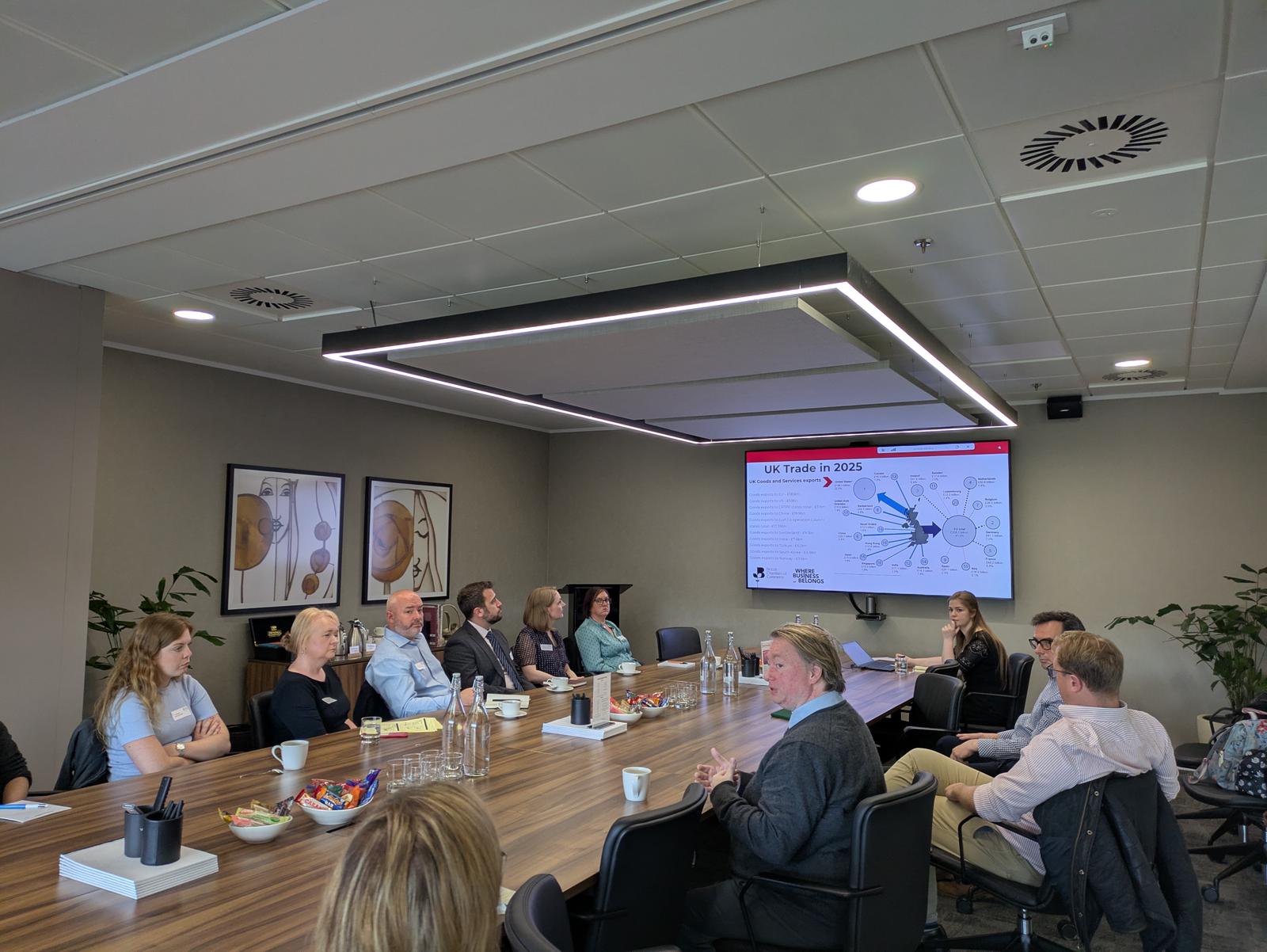Following a visit last week to Brussels, BCC Head of Trade Policy, William Bain, gives his thoughts on next steps in the UK/EU trade relationship reset:
It was great to join with trade policy experts and business organisations for the UK Mission to the EU’s Open Trade Project reception last week. The new Deputy UK Ambassador, Caroline Read, outlined the prospects for economic growth and deeper trade from EU-UK reset negotiations this autumn. She also touched on the opportunities from new UK trade agreements and enhanced relationships in the Indo-Pacific region. And it was no surprise to hear her talk about finding new ways to co-operate on, and resolve, future disputes with our leading trading partners through new plurilateral actions.
Marco Forgione, CEO of the Chartered Institute for Exports and International Trade, the co-hosts of the event, also spoke about the gains to be made by reducing friction in bilateral trade between the UK and EU.
The improving UK-EU relationship is also an important factor for inward investment into the UK from the US. This was highlighted this week by the latest research from British American Business and Bain & Company. Their Transatlantic Investor Sentiment Index found that, for one in three US companies surveyed, it remains a top priority, and was the 4th highest priority, overall. It was also clear that US investors have clearly noted the improved economic and political relations between the EU and UK over the past year.
For both the UK and EU this autumn the key challenges include:
- Economic growth
- Reducing regulatory burdens and costs
- Strengthening defence industries
- Rolling out industrial strategies
- Setting the right pace on the net zero transition
- Restructuring supply chains.
Both sides want to expand their trade footprint in the Indo-Pacific, engage with the US Administration on trade and tariffs, and meet the European defence and security challenges from the War in Ukraine. This includes the commitment to raise defence and security spending to 5% of GDP by the middle of the next decade.
Additional meetings with officials from the Scottish and Welsh Governments in Brussels, as well as the UK Mission, emphasised the importance of lowering trade barriers for food and drink products from Scotland and steel from South Wales.
The upcoming negotiations between the UK and EU will be robust but they are the key to delivering lower trading costs. Both sides are expected to seek an agreement to reduce checks and costs on movements of food and plant products between Great Britain and the EU – a Sanitary and Phytosanitary (SPS) agreement. This has the potential to remove red tape, checks and delays which have cost British businesses £60m a year in compliance since 2021.
The interplay between this agreement and the Windsor Framework, which will continue to be the foundation of Northern Ireland’s (NI) relationship with the EU for trade in goods, will also have benefits. These include the removal of ‘not for EU’ labelling and other reductions in product checks at ports.
UK Ministers hope to have this agreement reached and in force in time for the start of 2027.
This is likely to be conjoined with negotiations on linking the Emissions Trading Schemes of both sides. This would bring greater convergence on carbon prices and remove Carbon Border Adjustment Mechanism (CBAM) obligations in the six goods sectors covered by the EU system. But it is unlikely there will be a bridging mechanism created for the UK. This means the next phase of EU CBAM application to UK goods in scope looks set to begin on 1 January next year, unless this is augmented by an ETS linkage deal.
Another consideration will be the need for an agreed approach between the UK government and devolved administrations on introducing new legislation around dynamic alignment in any prospective deals. Any such agreement would mean putting UK legislation in lockstep with further developments in the EU, a potentially thorny issue.
Dedicated dialogues are also due to take place on areas for co-operation around electricity market access, energy, supply chains. justice and home affairs, a youth experience scheme and the UK becoming an associate member of the Erasmus+ programme on skills, training, education and youth exchanges.
Alongside the negotiations there will be a lot of work needed by specialised committees, made up of officials from both sides. They will consider areas including customs, VAT, and professional qualifications.
The pressure will be on them to make pro-growth decisions without delay.
There is no doubt a busy autumn awaits. The BCC will be a strong voice for business in getting the most out of these developments in stronger growth and higher levels of trade – working together to make trade simpler, cheaper and quicker.
